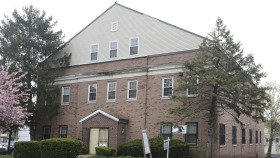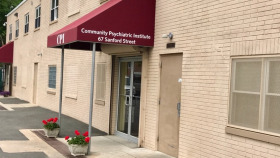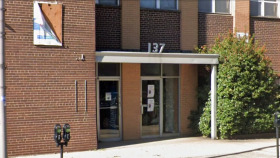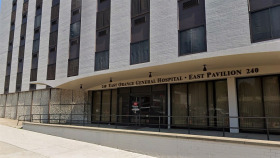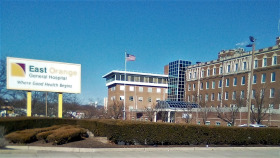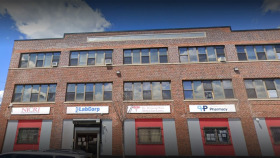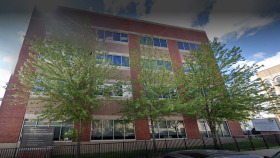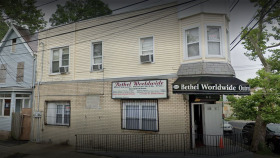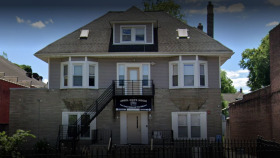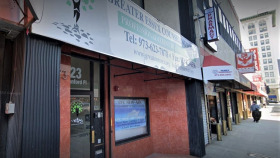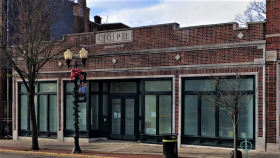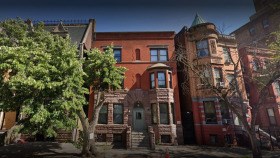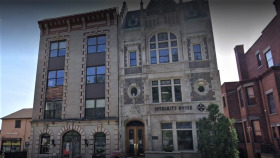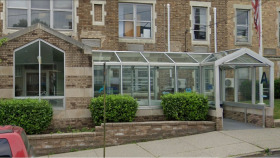Drug and Alcohol Statistics in East Orange
The reasons for entering drug and alcohol rehab in East Orange vary among residents. Some may have a substance use disorder, and some may have a polysubstance use disorder. According to East Orange drug rehabs, in 2021:1
In 2020, the fentanyl crisis began intensifying. Many substance users took the drug unknowingly. Fatal and non-fatal overdoses occurred. Out of the 347 confirmed deaths related to drugs:2
318 were related to fentanyl
146 were related to cocaine
106 were related to heroin
Narcan is a medicine that reverses the effects of an opioid overdose, saving lives almost daily. Between January and November 2022:3
2,062 doses were administered in Essex county
133 doses were administered in East Orange
Levels of Substance Abuse Care
Multiple levels of care are available for addiction treatment. Some New Jersey residents move through each of these levels of treatment, while others need only the least intensive care.
Alcohol and Drug Detoxification
Detox is completed under medical supervision in a hospital, inpatient, or outpatient setting. This is the process of safely and comfortably removing drugs or alcohol from your system. Once detox is complete, you can move forward with other treatment services.
Inpatient Drug and Alcohol Rehab
Inpatient rehab, also called residential treatment, involves living at a treatment facility to receive 24/7 care. Services usually include individual and group therapy, medication, recreational therapy, and nutritional counseling.
Partial hospitalization programs (PHPs)
PHPs allow New Jersey residents to live at home while receiving treatment through a hospital. This program usually provides the same treatment services as inpatient care, but you can return home during non-treatment hours.
Intensive Outpatient Programs (IOPs)
IOPs are a step down from PHPs, allowing you to attend a few hours of counseling each week while living at home. This provides time to maintain a work schedule or fulfill other obligations.
Standard Outpatient
Standard outpatient programs involve just one to two hours of treatment per week. This level of treatment involves the least supervision and is appropriate for highly motivated people who have a strong support system.
Aftercare
Also known as relapse prevention, aftercare starts once your rehab program is complete. It includes ongoing support such as 12-step programs, sober living homes, and therapy.
How to Pay for Drug Rehab in East Orange, New Jersey
New Jersey Medicare
New Jersey Medicare provides health insurance to New Jersey residents who are 65 or older or have certain other health conditions. You are automatically enrolled in this program at age 65 if you are receiving Social Security or Railroad Retirement Board retirement benefits.
Many Medicare options are available in New Jersey that go beyond basic coverage, such as Medicare Advantage Plans and Medigap plans. The New Jersey State Health Insurance Assistance Program (SHIP) offers free help with questions regarding Medicare benefits and policies. Not all treatment centers accept Medicare insurance coverage, so always do your research before choosing a provider.
New Jersey Medicaid
New Jersey’s Medicaid program provides health insurance to New Jersey residents who are aged, blind, or disabled, to pregnant women, and to parents/caretakers and dependent children. To be eligible for New Jersey Medicaid, a person must be a resident of New Jersey, be a U.S. Citizen or qualified alien, and meet specific standards for financial income. You must apply for Medicaid coverage in New Jersey, and the rehab program must accept Medicaid as a method of payment.
Sliding Scale Rehabs
Sliding scale rehabs assist New Jersey residents who have limited financial resources to pay for treatment. You will be charged based on what you can reasonably afford to pay. To qualify for a sliding scale rehab in New Jersey, you typically need to provide proof of income.
TRICARE in New Jersey
New Jersey TRICARE (East region) is a government program that provides health insurance coverage for U.S. military personnel, veterans, and their families. TRICARE covers addiction treatment services; however, various plans differ in their coverage.
IHS-Funded Drug Rehabs
The Indian Health Service (HIS) funds addiction treatment for Indigenous people and Alaskan Natives in New Jersey and nationwide. This coverage is provided even if other insurance payment is available.
Traveling to and Within East Orange
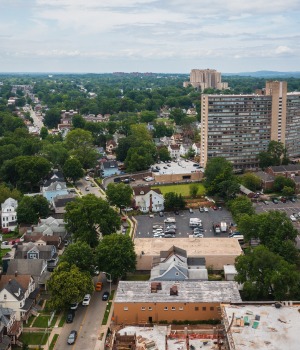 If you are flying to a drug rehab in East Orange or visiting a loved one in treatment, you may want to fly using the Newark Liberty International Airport. Ground transportation services like the Amtrak train, Port Authority Trans-Hudson (PATH), and the New Jersey Transit bus can help you get around once you’ve arrived. You can also catch a shuttle, rent a car, or take a taxi to a drug and alcohol rehab in East Orange or your chosen lodging. More private transportation includes UBER, LYFT, and other rideshares.4
If you are flying to a drug rehab in East Orange or visiting a loved one in treatment, you may want to fly using the Newark Liberty International Airport. Ground transportation services like the Amtrak train, Port Authority Trans-Hudson (PATH), and the New Jersey Transit bus can help you get around once you’ve arrived. You can also catch a shuttle, rent a car, or take a taxi to a drug and alcohol rehab in East Orange or your chosen lodging. More private transportation includes UBER, LYFT, and other rideshares.4
Lodging options include:4
- Hotels
- Motels
- Bed and Breakfasts
- Air BnB
- VRBO
- Campgrounds
- RV parks
- Inns
Improving skills for health and recovery involve finding sober activities to help you learn, grow, and have fun. East Orange offers many diverse opportunities for you and your family. You can take children to the Children’s Museum for hands-on experiences if you have children.4 You can also join a do-it-yourself workshop to learn how to make candles, soaps, chocolate, or glass.
Take a cooking class, complete your higher education, or catch the train into New York City for a Broadway play or professional sporting event. Recovery plans often include volunteer opportunities because giving back to the community is rewarding.
The East Orange Family Success Center has multiple monthly community events and needs volunteers.5
You can fulfill the aftercare plan created by the Essex County drug rehab, including:6
- Attending support groups
- Taking care of your physical and mental health
- Job training
- Transitional housing
- Continuing education
Aftercare plans help you transition out of treatment and back into your life full-time. With many resources available in East Orange, you can be successful.
New Jersey Drug and Alcohol Laws
New Jersey policy makers have established the following laws related to substance misuse1,2,3,4,5
New Jersey Good Samaritan Law: New Jersey’s Overdose Prevention Act provides protection from criminal prosecution for New Jersey residents who report or seek help for suspected overdose on illegal drugs. The law encourages people to call 911 immediately, without fear of legal repercussions.
New Jersey Driving or Operating Under the Influence Laws: Under New Jersey Law, if an offender’s blood alcohol content (BAC) is between 0.08 and 0.10, the penalties are a fine of $250-$400, imprisonment for up to 30 days, driver’s license forfeiture until ignition interlock is installed (required for 3 months), a minimum of six hours a day for two days in an Intoxicated Driver Resource Center, and an automobile insurance surcharge of $1,000 per year for three years. Penalties increase for higher BACs and repeated offenses.
New Jersey Drug Courts: This program offers non-violent drug offenders an alternative to prison. New Jersey residents convicted of a drug-related crime may be eligible to complete a supervised drug or alcohol treatment program instead of serving jail time.
Resources
- New Jersey Department of Human Services. 2021. New Jersey Drug and Alcohol Abuse Treatment Substance Abuse Overview 2020 Essex County.
- NJ Office of the Chief State Medical Examiner. 2022. Dashboard Confirmed Deaths.
- NJ Department of Health. 2022. Naloxone Dashboard.
- East Orange, New Jersey. 2022. Experience East Orange.
- Center for Family Services. 2022. East Orange Family Success Center Volunteer.
- County of Essex, New Jersey. 2022. Mental Health and Substance Abuse Services and Other Resources.


